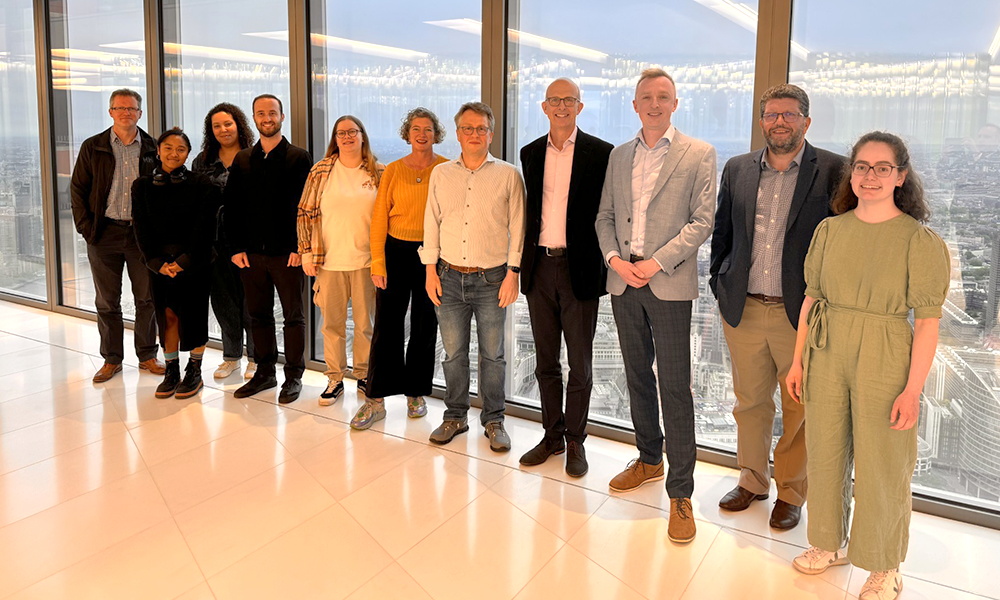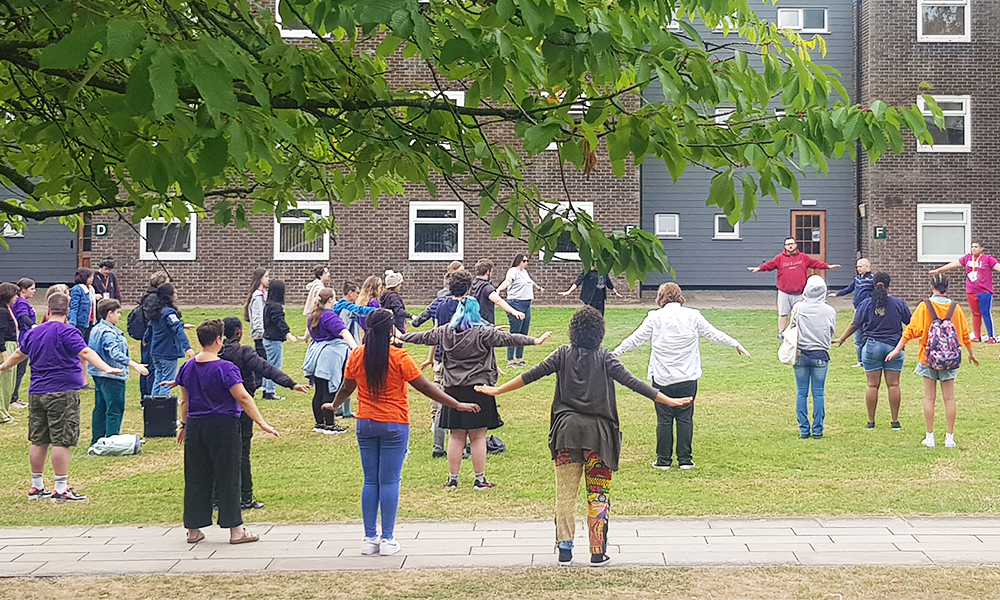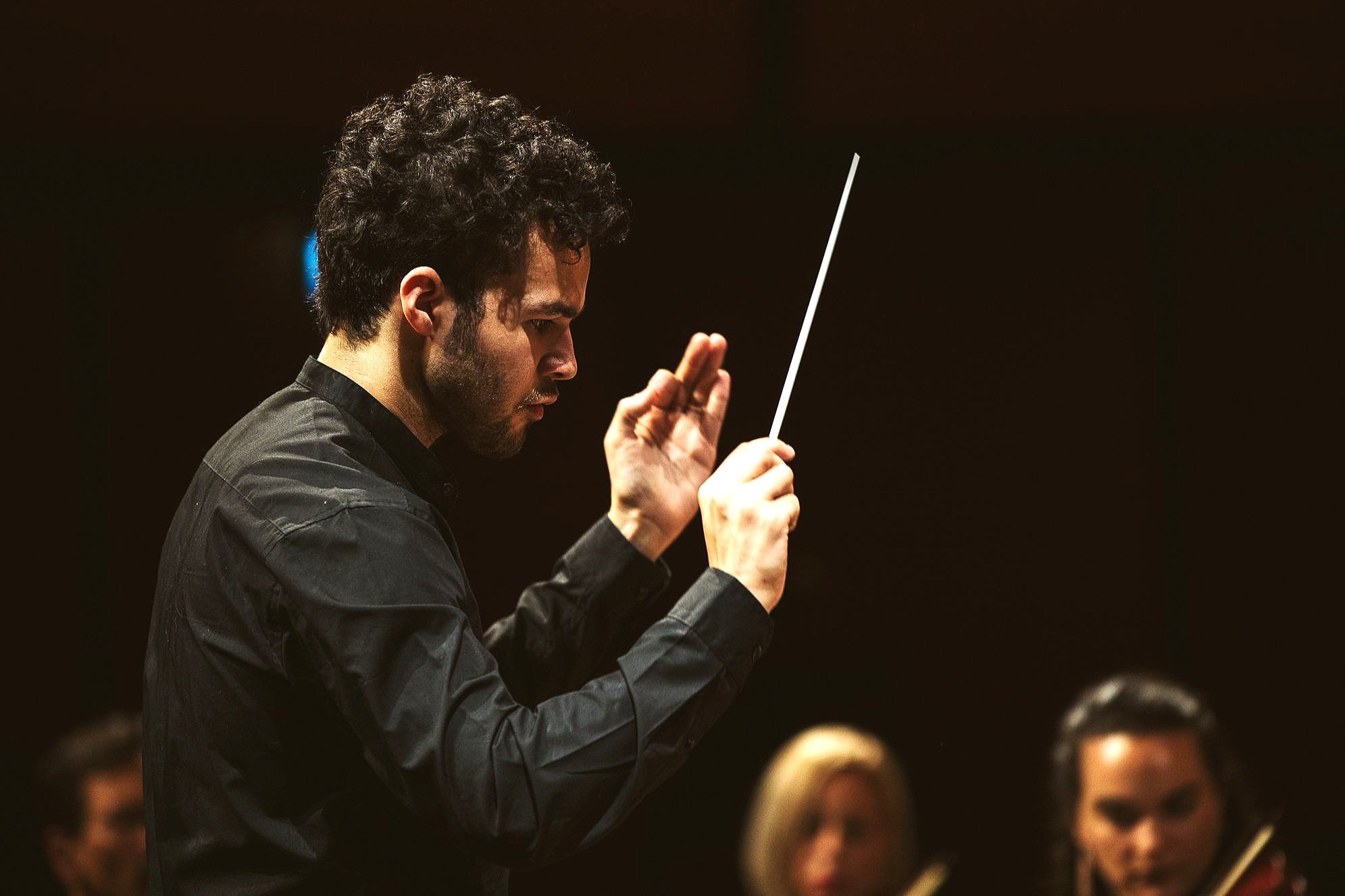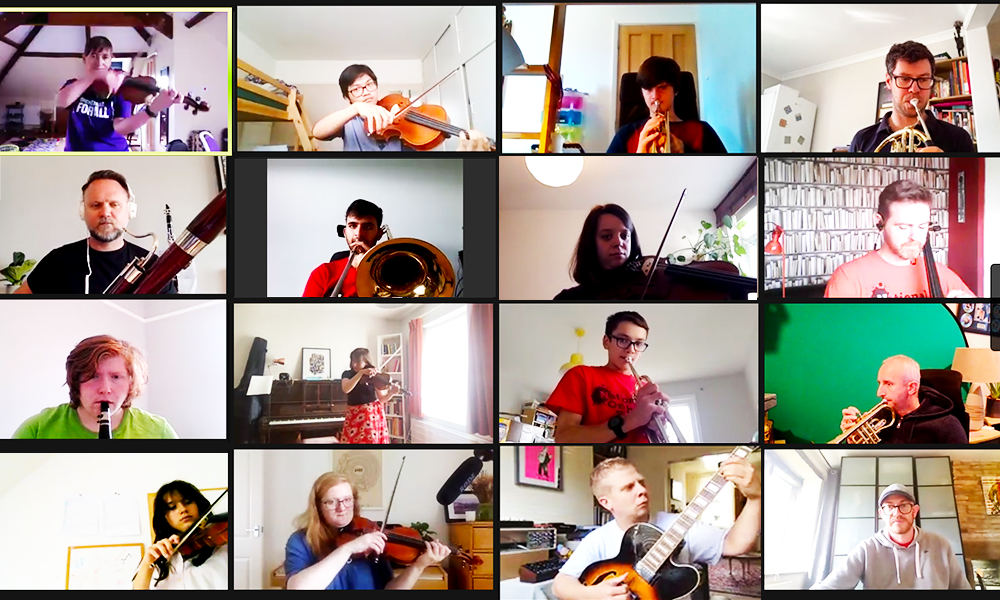Making a difference: Trustees and members of the core team gather for a meeting in London.
Ever considered becoming a charity trustee? Here are just some of the brilliant ways you could benefit…
At Orchestras for All (OFA), trustees play an integral role in our team, using their expertise to help us fulfil our mission: breaking down barriers to music-making for young people in the UK.
Our passionate volunteers bring invaluable support in areas such as fundraising, finance, HR, and digital marketing. Their contributions make a significant impact on the lives of thousands of aspiring young musicians and drive lasting change in society.
Joining the Orchestras for All family in this dynamic and inspiring role offers numerous benefits for you as well.
To learn more, we spoke with two of our former trustees—Emily, a Lecturer at Canterbury Christ Church University, and Kate, Director at Western Jerwood Creative Bursaries—as well as our current Co-Chairs of the Board of Trustees, Beth and Joelle.
Pictured: Trustees, Ambassadors and OFA team members enjoy a group discussion during an away day.
1. You’ll experience the joy of live (and virtual) events
Emily: When our artistic events are live, the concerts and fundraising activities are hugely enjoyable. Talking to the supporters, young people and their families and seeing the performances themselves is a powerful motivator!
During the pandemic, being invited to OFA’s online events and viewing the videos created after the courses was definitely a lockdown highlight too.
Kate: The pride I feel when the orchestra plays to a packed audience of thousands at the First Direct Arena in Leeds, or when a player talks about the impact of OFA on their life, is immense.
Please donate today and make a difference to young musicians’ lives >
2. You’ll contribute to a great cause
Joelle: I’ve been part of Orchestras for All since 2016 and gained so much knowledge and musical appreciation from the charity, which I’m really grateful for. I’d like to take this opportunity to give back to OFA, an organisation that has given me so much.
Being a trustee is a great opportunity to make an impact within the charity and represent the young people as a young person.
Beth: I would like to bring the voice of the people that benefit from, or have benefited from, the programmes at Orchestras for All. I’m excited to support OFA to launch its new strategy in the best way possible.
Emily: Hearing from our Youth Board about the difference that Orchestras for All has made to their lives is key – and celebrating the successes of the young people OFA works with in a range of fields proves it is making an impact.
Kate: I feel I have played my part, however small, in helping to break down barriers to music-making for young people. Being an OFA trustee gave me a fantastic insight into what goes on behind the scenes to make the charity’s vision a reality.
3. You can build your professional network
Emily: Being involved in recruitment for key positions is a very practical way of seeing how the charity’s strategy is being implemented and ensuring that it has the skills in its team to achieve it. Helping to build a super team is very satisfying!
4. You’ll make friends for life
Emily: It’s so wonderful to meet like-minded individuals with a common goal. The thrill when you find out that applications to trusts, foundations and grants have been successful is wonderful and shows that other organisations share and understand our vision. The artistic update at every trustees’ meeting keeps you focused on the art and lets you know what the young people (and the audience) have to look forward to at the next performance.
Beth: When I joined Orchestras for All, I was 13 years old. Before then, I’d only had access to brass bands, so for me it was a great opportunity to join an ensemble and meet people from different backgrounds from around the country. It was my only source of diversity growing up, and I still benefit from this now as a trustee.
5. It looks great on your CV
Kate: I have learnt so much over my years as a trustee about how to make music-making accessible to all young people and this knowledge helps me with my day job promoting diversity and inclusion in the arts. It really is a two-way exchange of experience between the charity and its Board.
Emily: As a volunteer, feeling like you are making a difference is vital – if you work for a very large organisation in your day job (as I currently do) you can feel like a tiny cog in a very big machine. But as a Trustee, you feel more like you are the sat nav or co-pilot on an exciting journey. Come and help drive Orchestras for All forward to its next destination!
Keen to become an OFA Trustee? Find out more and apply for our current vacancies >

































